


From the Corona Crisis to the Climate Crisis
Chen Lichtenstein, Chief Financial Officer, Syngenta Ventures: “Tthe challenges and complications a small country like Israel faces, is a drop in the ocean by comparison. Israel should be able to easily make decisions of the same explicit impact – the word zero is critical.”

Regulators in Conversation: Financial Risk and Climate Change
"If you look at the S & P, close to 86% of companies today report on Environmental, Social, and Governance (ESG) compared to a decade ago" said Anat Levin, CEO, BlackRock Israel, on the topic of how the global financial market adapts itself to ESG

From Global to Local: The Impact of the Global Crisis on Israel
As part of the Israel Democracy Institute’s Eli Hurvitz Conference on Economy and Society, a panel was held (Dec. 14th) on the implications of the global crisis on Israel, including the labor market and the question of the budget, US–Europe–Israel relations in the Biden era, changes in times of crisis and routine, and preparedness for future challenges.

2020 Eli Hurvitz Conference on Economy & Society – Recap of Day 1
The first day of the 2020 Eli Hurvitz Conference on Economy and Society included discussions and deliberations with the Finance Minister Israel Katz, Prof. Amir Yaron the Governor of the Bank of Israel, Prof. Avi Simhon, the Chair of the National Economic Council, and senior private sector leaders from Israel and abroad.

How Willing are Israelis to Reduce Carbon Emissions? Survey
A new survey conducted by the Israel Democracy Institute (IDI) examined Israeli's attitudes toward climate change and the possible steps to stem the tide.
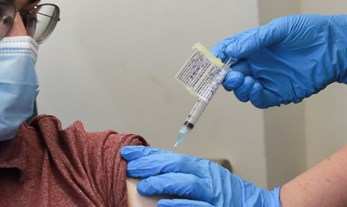
Incentivizing Compliance is a Great Approach but Must be used with Care
Written By: Prof. Yuval Feldman
Incentivizing compliance could have a negative impact on those who view being tested for the coronavirus as an act of civic responsibility
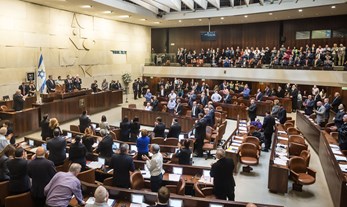
Two Knesset Bills Based on IDI Proposals Pass Preliminary Votes
Two bills based on the IDI research and policy proposals passed preliminary votes in the Knesset. The first anchors the right to equality in Israeli law and the second is a bill regulating digital election campaigns.

In God They Trust
Written By: Dr. Gilad Malach
Dr. Gilad Malach, Director of the Ultra-Orthodox in Israel Program at the Israel Democracy Institute, discusses how the COVID pandemic has affected the internal dynamics of Israel's Haredi communities, their relationship with their political leadership and with government as a whole.

Leaders' Credibility Low
Written By: Prof. Tamar Hermann, Dr. Or Anabi
Our monthly Index found that both Prime Minister Netanyahu and Alternate Prime Minister Benny Gantz have low or very low credibility among Israelis.

Israel’s Nation-state Law Isn’t ‘Declarative,’ It Does Real Damage
Written By: Dr. Amir Fuchs
"Legislative declarations do not remain purely "declarative". They have consequences." Dr. Amir Fuchs explains.

Is Israel Headed to 4th Elections? Briefing
Written By: Yohanan Plesner
Yohanan Plesner, President of the Israel Democracy Institute on today’s preliminary vote to disperse the Knesset: "Today's vote served as the opening shot in the 'blame game' with both Gantz and Netanyahu seeking to frame the other side as dragging the country towards a fourth elections as COVID numbers begin to rise again."

Haredim Trust Rabbis More Than the Health Ministry on COVID-19
Written By: Prof. Tamar Hermann, Dr. Or Anabi
62% of Haredim have very little or no confidence in Prime Minister Netanyahu's Handling of COVID-19; 60% think decision makers are guided mostly or only by political concerns

National Security and Democracy Day 2
The second day of the Israel Democracy Institute's Center for National Security and Democracy annual conference, held in partnership with the Konrad Adenauer Stiftung (Israel office), concluded today (Wednesday). The online conference focused on public trust in the IDF, the militarization of a civilian crisis, the IDF model of service and gender equality in the military.

National Security and Democracy Conference Day 1
IDI's annual conference on National Security and Democracy, held in partnership with the Konrad Adenauer Stiftung (Israel office), convened top officers and academic experts to discuss the changing relations between the IDF and Israeli society and draw lessons for the future from the military’s unprecedented involvement in the civilian COVID-19 crisis.
From Top Down to Bottom Up
Written By: Dr. Tehilla Shwartz Altshuler, Dr. Rachel Aridor-Hershkovitz
Israel Democracy Institute Experts to the Chair of the Foreign Affairs and Defense Committee: “The only way to return to normal routine is through regulation and by encouraging the use of locally-developed apps in malls, workplaces and in educational institutions"

The Haredi Fears Behind the Opening of Yeshviot Amid COVID-19
Written By: Dr. Asaf Malchi
For many, the spiritual and educational dangers inherent in leaving large numbers of young people with no binding religious framework outweigh the health risks in keeping these institutions open

Large Majority Think IDF Should Manage Coronavirus Crisis
A special survey reveals that the public perceives the IDF as a skilled army and is prepared to face major military threats

Israelis Wary about Partaking in First Round of Vaccinations
Written By: Prof. Tamar Hermann, Dr. Or Anabi
This survey is the fourteenth in a special series examines the public attitudes towards government policies relating to the coronavirus outbreak and to the economic fallout from the pandemic

Transitions Between Religious Groups among Israeli Jews: Abstract
Written By: Gabriel Gordon
This study provides first-ever reliable estimate of the rate and scope of transitions into and out of the ultra-Orthodox community; an analysis made possible thanks to innovative methodology and a rich dataset.

70% of Jewish Israelis: A Second Trump is Preferable for Israel’s Interests
Written By: Prof. Tamar Hermann, Dr. Or Anabi
When it comes to the their country's interests, Israelis increasingly think that Donald Trump is the preferable US presidential candidate.
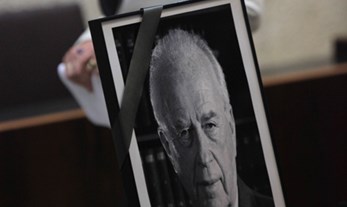
Yitzhak’s Blood Cries Out to us from the Ground
Written By: Prof. Yedidia Z. Stern
Although 25 years have passed since that terrible night - the mourning for a murdered prime minister, assassinated out of political and religious motives, must never fade away and must never be forgotten

Reimagining Democracy Highlights
The Israel Democracy Institute held the first day of the inaugural "Reimagining Democracy" conference - in commemoration of the late Prof. Yaron Ezrahi. The sessions focused on the future of the relationship between the branches of government and the increasing tension between them.

Ultra-Orthodox Non-Compliance Rests on Fear
Written By: Dr. Shuki Friedman
In the second wave of the pandemic it seems that many ultra-Orthodox rabbis are assigning higher priority to 'customer retention' than to the clear halakhic imperative to preserve health and life

An Organized Civil Disobedience Campaign
Written By: Prof. Yedidia Z. Stern
Rabbi Kanievsky’s decision to disregard the law and open ultra-Orthodox schools is the first time in Israeli history that we are seeing something that approaches a call for mass civil disobedience orchestrated by a key public figure.
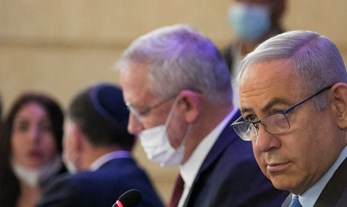
Majority Think 2nd Lockdown was Politically Motivated
Written By: Prof. Tamar Hermann, Dr. Or Anabi
55 percent of Israelis believe that the second lockdown was solely or mainly politically motivated; The majority of the public continues to express confidence in Prof. Gamzu; Continued increase in public concern about the economy

Haredim and Coronavirus: Policy Recommendations for Exit from Second Lockdown
Written By: Dr. Asaf Malchi, Dr. Gilad Malach, Dr. Shuki Friedman
IDI experts present analysis of recent behavior of the ultra-Orthodox sector and present recommendations for an exit strategy from the lockdown, to be applied in the coming weeks and months.

The Dissonance of Israel’s “Hardalim”
Written By: Yair Sheleg
How does Israel’s national-ultra-Orthodox population (“Hardalim”) combine ideals of the "new Jew" with their ultra-Orthodox religious world view?

Zionism and Democracy Conference: Day 2
“Polarity in Israeli society has never been worse” says Chairman of Yisrael Beiteinu Party, MK Avigdor Liberman at two-day conference on the relationship between Zionism and Democracy commemorating 25 Years after the assassination of PM Yitzhak Rabin
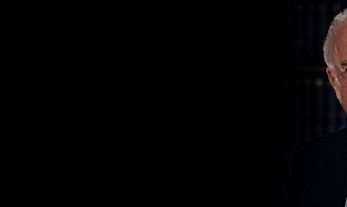
25 Years After the Assassination of PM Yitzhak Rabin - Survey on Incitement
Special IDI survey finds that 45% of Israelis believe another assassination is possible; large majorities of leftwing voters, ultra-Orthodox and Arab Israelis see themselves as targets of incitement and 69% of the ultra-Orthodox believe that democracy is an essential component of Zionism


